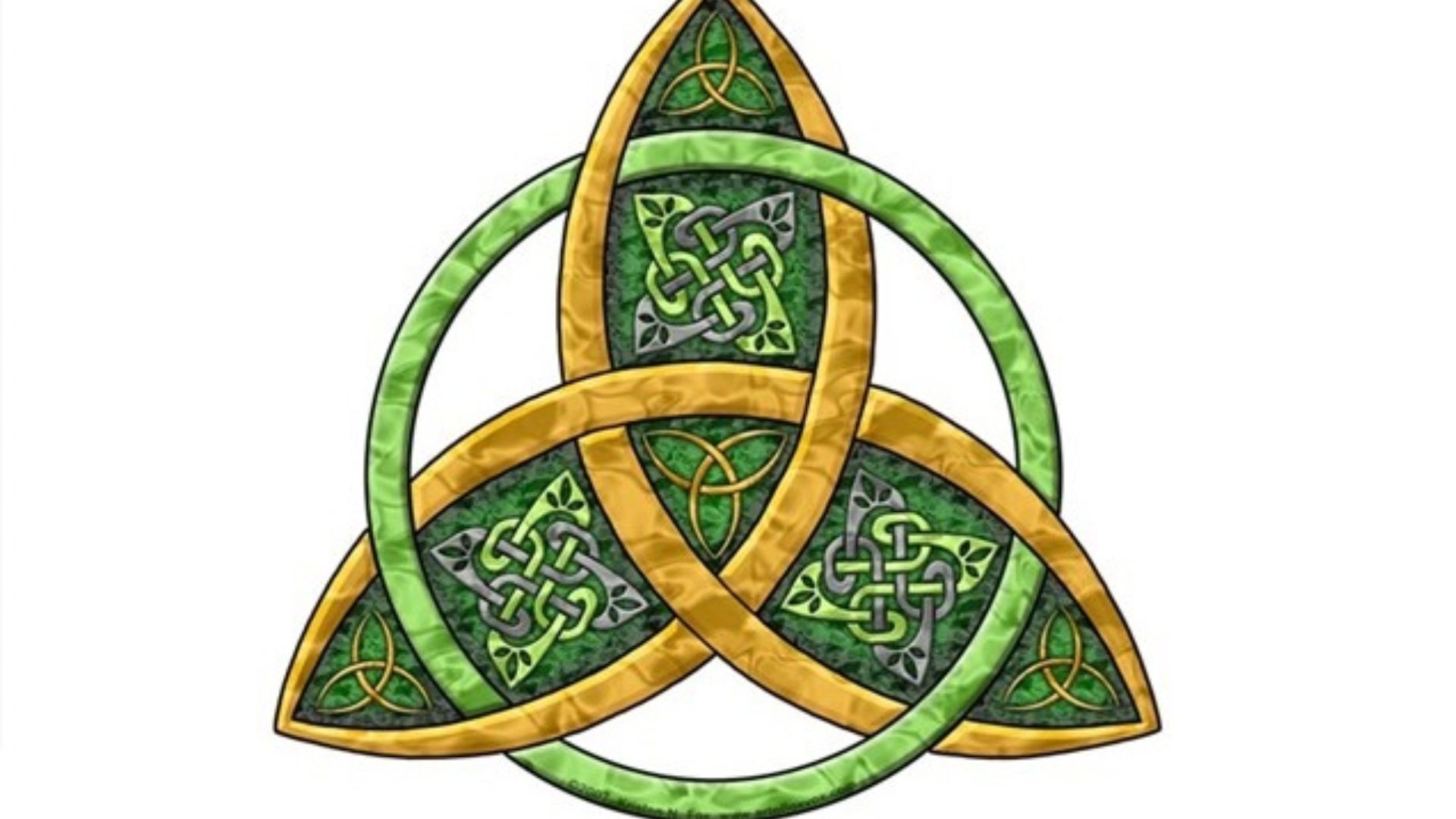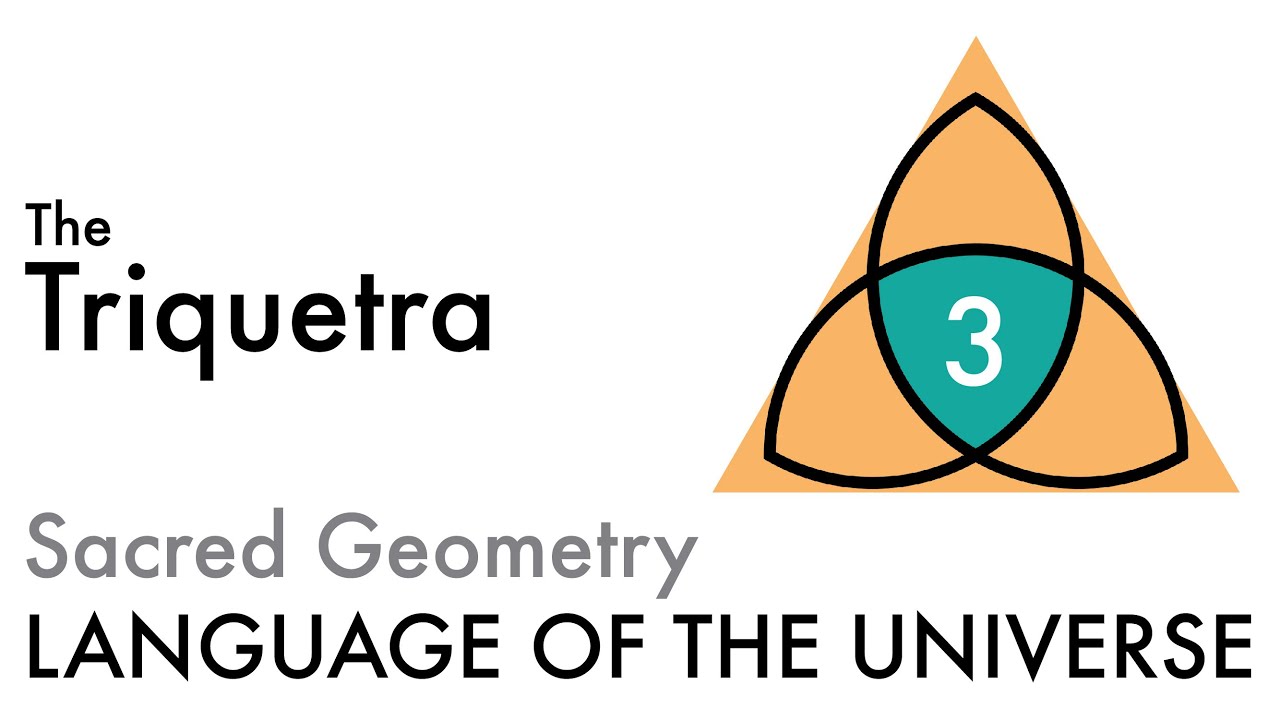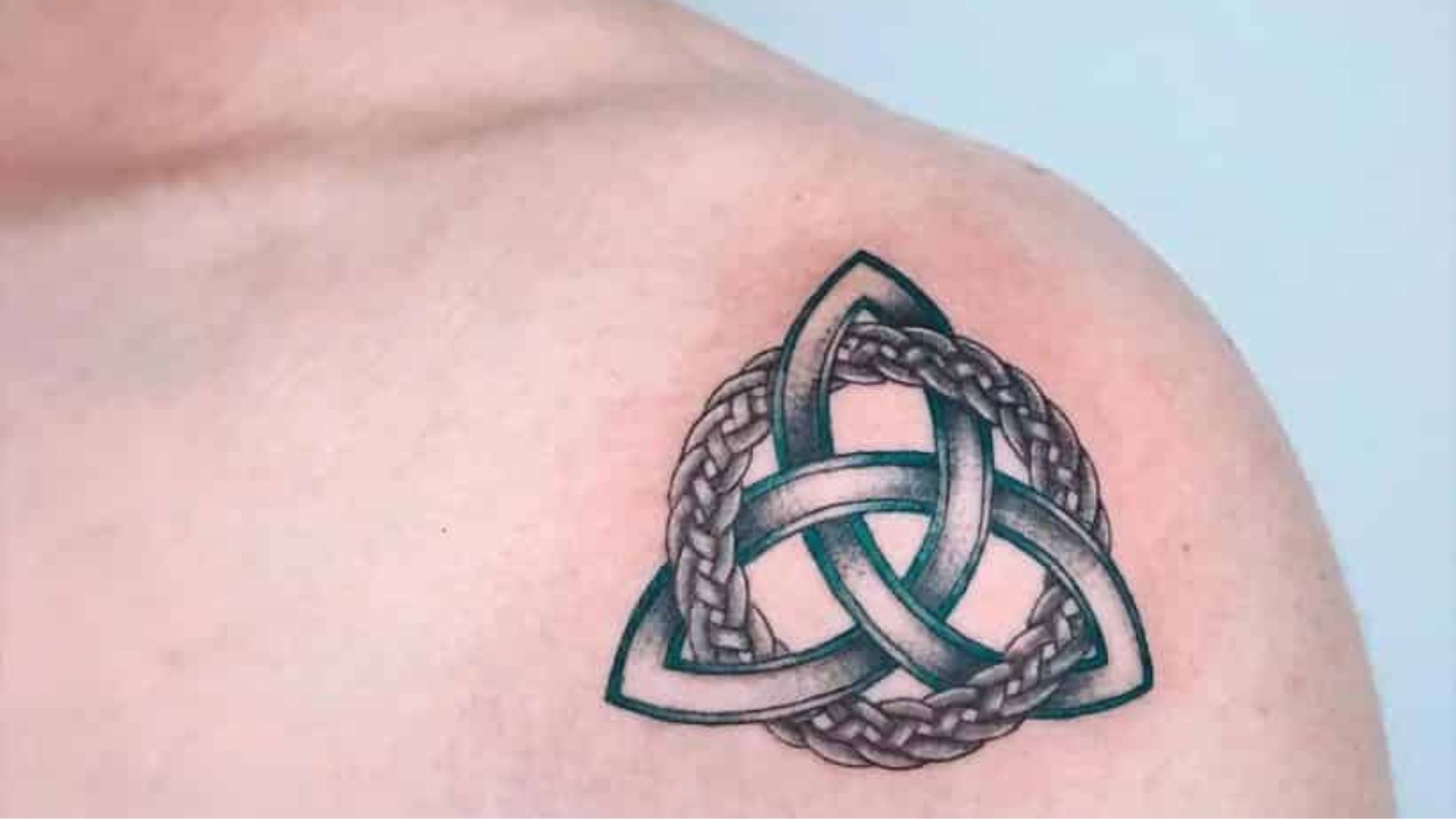Triquetra Meaning - Understanding The Symbolism Of The Three-Pointed Knot
Triquetra, also known as the Trinity Knot, is a Celtic symbol that has been used for centuries. The triquetra meaning has evolved over time, and it holds different meanings for different people. In this article, we'll explore the symbolism of the triquetra and its various interpretations.
Author:Suleman ShahReviewer:Han JuMay 31, 2023337 Shares337.2K Views

Triquetra, also known as the Trinity Knot, is a Celtic symbol that has been used for centuries. Thetriquetra meaninghas evolved over time, and it holds different meanings for different people. In this article, we'll explore the symbolism of the triquetra and its various interpretations.
Interpretations Of Triquetra
The triquetra has been interpreted in various ways over time. Here are some of the most popular interpretations.
- Trinity- As mentioned earlier, the triquetra represents the Holy Trinity in Christianity. It is a symbol of the Father, Son, and Holy Spirit. It is also believed to represent the three stages of human life, birth, and death.
- Mind, Body, and Spirit- The three points of the triquetra can also represent the three aspects of human existence mind, body, and spirit. The Triquetra is a reminder that we need to take care of all three aspects of our being to live a fulfilling life.
- Past, Present, and Future- The triquetra can also represent the past, present, and future. It is a symbol of the cycle of life and how everything is interconnected.
- Love, Honor, and Protect- In modern times, the triquetra has become a symbol of love, honor, and protection. It is often used in jewelry and tattoos as a way to express love and commitment.
- Triple Goddess- The triquetra is also associated with the Triple Goddess in Wiccan and pagan traditions. The three points represent the Maiden, Mother, and Crone. It is a symbol of the feminine divine and the cycles of life.
Uses Of Triquetra
The triquetra has been used in various ways throughout history. Here are some of the most common uses.
- Jewelry - The triquetra is a popular design for jewelry, especially for those who are interested in Celtic or pagan symbolism.
- Tattoos - The triquetra is also a popular tattoo design. It is often used to represent love, family, and spiritual connection.
- Home Decor- The triquetra is a popular design for home decor items like wall hangings, candles, and blankets.
- Art - The triquetra is a popular subject in art, especially in Celtic art. It is often depicted in intricate knotwork designs.
- Logo Design- The triquetra has been used as a logo design for various businesses, especially those that are related to spiritualityor Celtic culture.
Triquetra Symbol Pagan Meaning
The triquetra symbol is often associated with paganism and has various interpretations and meanings in pagan culture. In this section, we'll explore the pagan meanings of the triquetra symbol.
History Of The Triquetra In Paganism
The triquetra symbol has a long history in pagan culture and was often used in ancient times to represent the triple goddess, which was the embodiment of the maiden, mother, and crone. It was also used to represent the three elements of earth, air, and water.
Interpretations Of The Triquetra In Paganism
The triquetra symbol has various interpretations and meanings in pagan culture, including.
- The Triple Goddess- The three interconnected loops of the triquetra symbol can represent the three aspects of the triple goddess - the maiden, mother, and crone.
- The Three Elements- The three points of the triquetra can also represent the three elements of earth, air, and water, which are essential to life.
- The Cycle of Life, Death, and Rebirth- The triquetra symbol can also represent the cycle of life, death, and rebirth, which is an important concept in a pagan culture.
Uses Of The Triquetra Symbol In Paganism
The triquetra symbol has been used in various ways throughout history in a pagan cultures, including.
- Altar Decor- The triquetra symbol is often used as a decorative element on pagan altars.
- Jewelry- The triquetra symbol is a popular design for pagan-inspired jewelry, including necklaces, bracelets, and rings.
- Tattoos- The triquetra symbol is also a popular tattoo design among those who follow pagan beliefs.
- Spellwork- The triquetra symbol is sometimes used in pagan spellwork to represent the three aspects of the triple goddess or the three elements.
Modern Interpretations Of The Triquetra Symbol In Paganism
The triquetra symbol is still a popular symbol today among those who follow pagan beliefs. It is often used to represent the triple goddess, the three elements, or the cycle of life, death, and rebirth. The triquetra symbol has been adapted into various modern designs, including clothing, jewelry, and home decor.
Triquetra Protection Meaning
The triquetra symbol is often associated with protection and has been used in various cultures and religions for this purpose. In this section, we'll explore the protective meaning of the triquetra symbol.
History Of The Triquetra In Protection
The triquetra symbol has been used for protection purposes in various cultures and religions throughout history. In Celtic culture, the triquetra was often used as a symbol of protection against evil spirits, and in Christianity, the triquetra was used as a symbol of the Holy Trinity and protection against evil.
Interpretations Of The Triquetra In Protection
The triquetra symbol has various interpretations and meanings in regard to protection, including.
- Protection Against Evil Spirits- In Celtic culture, the triquetra symbol was believed to protect against evil spirits and was often used in amulets and talismans for this purpose.
- Protection Against Negative Energy- The triquetra symbol can also be used as a symbol of protection against negative energy and can be worn or placed in a space to provide protection.
- Protection of the Holy Trinity- In Christianity, the triquetra was used as a symbol of the Holy Trinity, which provides spiritual protection.
Uses Of The Triquetra Symbol In Protection
The triquetra symbol has been used in various ways throughout history for protection purposes, including.
- Amulets and Talismans- The triquetra symbol was often used in amulets and talismans in Celtic culture for protection against evil spirits.
- Home Decor - The triquetra symbol can be used in home decor to provide protection against negative energy.

The Triquetra - Sacred Geometry
Modern Interpretations Of The Triquetra Symbol In Protection
The triquetra symbol is still used today as a symbol of protection in various cultures and religions. It is often used in jewelry and home decor to provide protection against negative energy or evil spirits. The triquetra symbol has also been adapted into modern designs, including clothing and accessories.
Trinity Knot Meaning Woman
The Trinity Knot, also known as the Triquetra, is a powerful symbol that holds various meanings for different people. In this section, we'll explore the significance of the Trinity Knot for women.
Feminine Energy And Empowerment
The Trinity Knot can hold a significant meaning for women, representing feminine energy and empowerment. The three interlocking loops of the knot can symbolize the three stages of womanhood - maiden, mother, and crone - and the power that women hold in each of these stages.
The knot can also represent the three aspects of the divine feminine - the maiden (innocence and purity), the mother (nurturing and love), and the crone (wisdom and experience). The symbol can serve as a reminder to women of their inherent strength and power.
Protection And Spiritual Connection
For women who follow spiritual practices, the Trinity Knot can hold significance in protection and spiritual connection. The three loops can represent the interconnectedness of the mind, body, and spirit, and the balance that is needed for a harmonious life.
The Trinity Knot can also serve as a symbol of protection, representing the threefold nature of protection - protection of the mind, body, and spirit. It can provide a sense of security and spiritual connection for women.
Relationships And Family
The Trinity Knot can also represent the significance of relationships and family for women. The three loops of the knot can represent the interconnectedness of relationships - the relationship between two individuals and the relationship between them and a higher power.
The symbol can also represent the importance of family, with each loop representing a family member or the three generations of a family - grandparents, parents, and children. It can serve as a reminder of the importance of family connections and the value of familial relationships.
Jewelry And Fashion
The Trinity Knot is a popular design in jewelry and fashion, particularly for women. It can be worn as a necklace, bracelet, or earring, serving as a reminder of its significant meaning.
The symbol can also be incorporated into clothing and accessories, representing the strength and power of women. The Trinity Knot is a versatile symbol that can be used in a variety of fashion styles, from bohemian to minimalist.
People Also Ask
What Is The Origin Of The Triquetra Symbol?
The origin of the Triquetra symbol is uncertain, but it has been found in many ancient cultures, including Celtic and Norse.
Does The Triquetra Have A Specific Meaning In Christianity?
Yes, in Christianity, the Triquetra can represent the Holy Trinity - the Father, Son, and Holy Spirit.
Is The Triquetra Symbol Associated With Any Specific Gemstones?
Yes, the Triquetra symbol is often associated with gemstones such as amethyst, garnet, and citrine.
What Is The Significance Of The Triquetra In Meditation And Mindfulness Practices?
The Triquetra can represent the balance between mind, body, and spirit, making it a powerful symbol in meditation and mindfulness practices.
Is The Triquetra Symbol Used In Any Modern-Day Organizations Or Movements?
Yes, the Triquetra symbol is used in various modern-day organizations and movements, including pagan and neo-pagan groups, as well as some Wiccan traditions.
Conclusion
The Triquetra or Trinity Knot is a symbol with deep and multifaceted meanings. It has significance in various contexts, including Norse mythology, pagan beliefs, protection, and for women.
Despite its various interpretations, the Triquetra represents interconnectedness and the balance between three aspects. Its symbolism reminds us of the importance of our connections to ourselves, others, and the divine.
Ultimately, the Triquetra meaning holds a powerful message of unity and harmony, reminding us of the importance of balance in our lives.

Suleman Shah
Author
Suleman Shah is a researcher and freelance writer. As a researcher, he has worked with MNS University of Agriculture, Multan (Pakistan) and Texas A & M University (USA). He regularly writes science articles and blogs for science news website immersse.com and open access publishers OA Publishing London and Scientific Times. He loves to keep himself updated on scientific developments and convert these developments into everyday language to update the readers about the developments in the scientific era. His primary research focus is Plant sciences, and he contributed to this field by publishing his research in scientific journals and presenting his work at many Conferences.
Shah graduated from the University of Agriculture Faisalabad (Pakistan) and started his professional carrier with Jaffer Agro Services and later with the Agriculture Department of the Government of Pakistan. His research interest compelled and attracted him to proceed with his carrier in Plant sciences research. So, he started his Ph.D. in Soil Science at MNS University of Agriculture Multan (Pakistan). Later, he started working as a visiting scholar with Texas A&M University (USA).
Shah’s experience with big Open Excess publishers like Springers, Frontiers, MDPI, etc., testified to his belief in Open Access as a barrier-removing mechanism between researchers and the readers of their research. Shah believes that Open Access is revolutionizing the publication process and benefitting research in all fields.

Han Ju
Reviewer
Hello! I'm Han Ju, the heart behind World Wide Journals. My life is a unique tapestry woven from the threads of news, spirituality, and science, enriched by melodies from my guitar. Raised amidst tales of the ancient and the arcane, I developed a keen eye for the stories that truly matter. Through my work, I seek to bridge the seen with the unseen, marrying the rigor of science with the depth of spirituality.
Each article at World Wide Journals is a piece of this ongoing quest, blending analysis with personal reflection. Whether exploring quantum frontiers or strumming chords under the stars, my aim is to inspire and provoke thought, inviting you into a world where every discovery is a note in the grand symphony of existence.
Welcome aboard this journey of insight and exploration, where curiosity leads and music guides.
Latest Articles
Popular Articles
